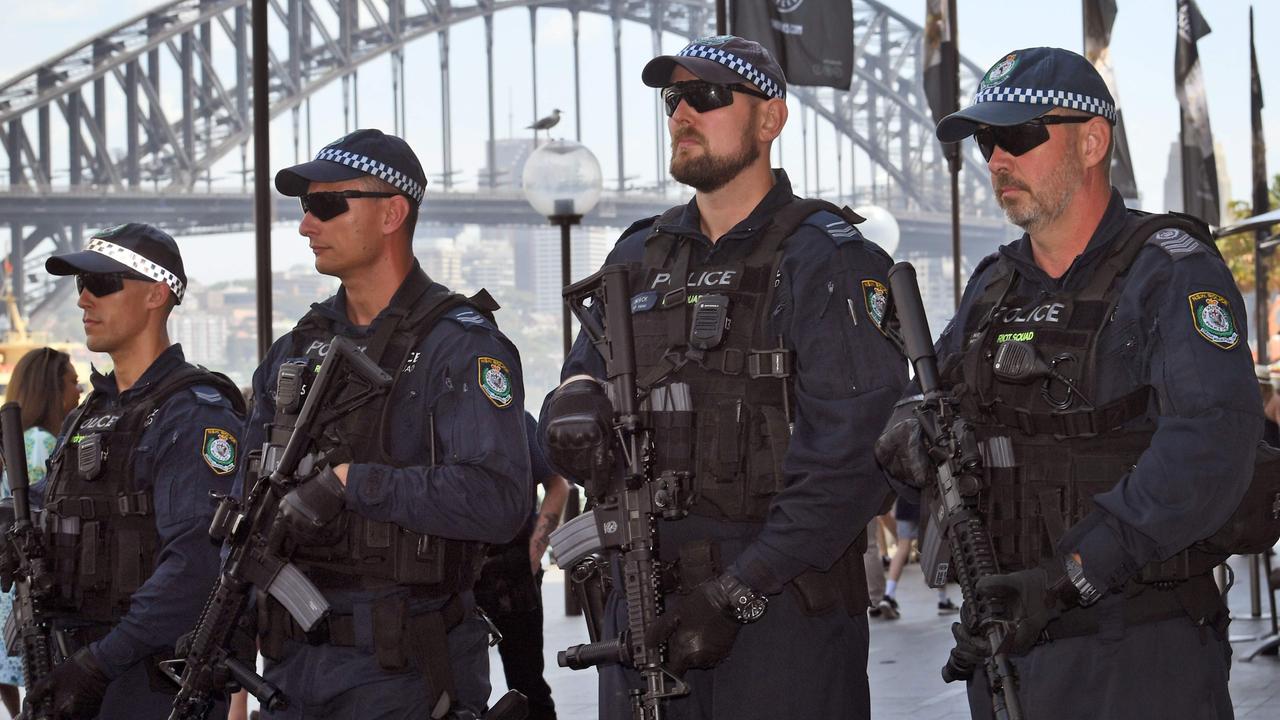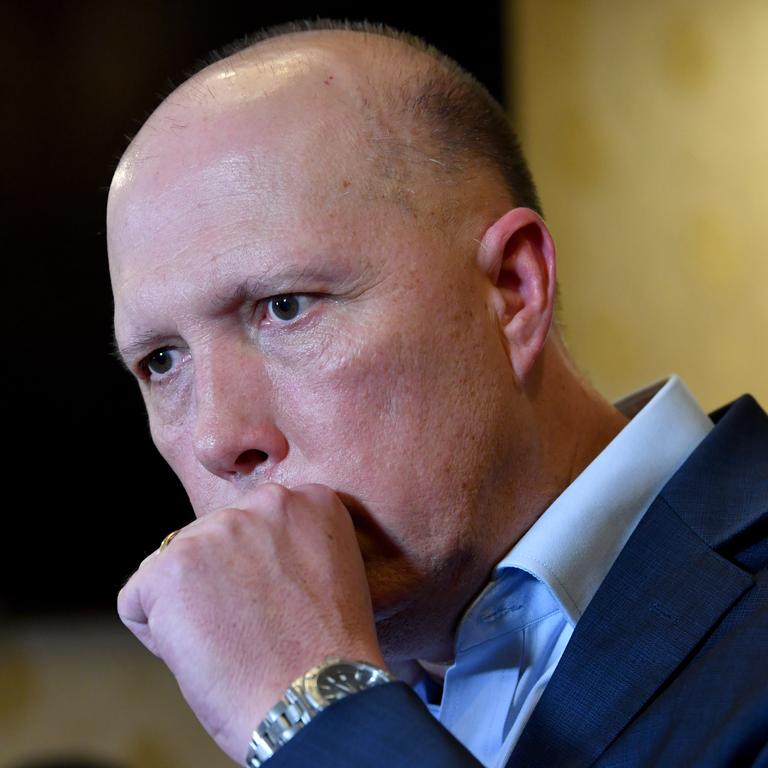Digital Rights Watch accuses successive governments of ‘bipartisan contempt’ for the rights of its citizens
Successive governments have been accused of “bipartisan contempt” for its citizens and dragging Australia into a “police state”.
An organisation that aims to protect the digital rights of Australians has released a timeline showing the “bipartisan contempt” successive governments have had for the privacy of its citizens, accusing them of dragging the country into a “police state”.
Digital Rights Watch (DRW) is a registered charity operating for the “general community in Australia”, according to its filings with the Australian Charities and Not-for-profits Commission.
The organisation has published the timeline on its website, beginning with the September 11, 2001 attacks on the World Trade Centre as a catalyst for the growth of government surveillance on its own citizens.
Through the remainder of the Howard years, the Rudd-Gillard-Rudd ALP, and the Abbott-Turnbull-Morrison Coalition, the organisation highlights more than 20 events and legislations that have had a negative impact on the digital rights of Australians.

DRW said the “bipartisan contempt for human rights continues to drag Australia into a police state”.
“It’s appalling to see the breadth of legislation that has been passed over the past 20 years, all of which has had a devastating impact on the human rights of everyday Australians,” said DRW chair Lizzie O’Shea.
“What we have seen is that successive governments of both major parties have been steadily eroding the protections of our fundamental human rights.”
She said most Australians wouldn’t be aware of how far the “legislative agenda” extends, “nor that it was a bipartisan responsibility”.
Ms O’Shea highlighted Labor’s December 2018 support for a Coalition move to compel tech companies “to break the security of their own products so that Australians can be spied on” as an example.
“On top of this, (Home Affairs minister) Peter Dutton is now floating the idea of expanding the mandate of the Australian Signals Directorate (ASD) so they can spy on citizens. These agencies have an insatiable appetite for power, and no matter how drastic the reforms, they always want more,” she said.

Ms O’Shea said it was important for the government to treat Australians as “citizens, not suspects”.
“We all want to live in a democracy where we have the freedom to live our lives without being watched, where the government respects our privacy,” she said.
“It’s time to turn this around – for both government and opposition to recognise the important role that human rights play in strengthening our democracy, solidifying community connections, and ensuring that we live in a safe country,” concluded Ms O’Shea.
When asked about the timeline, the Department of Defence told news.com.au to talk to the Department of Home Affairs.
The Department of Home Affairs said it was unable to comment on the two agencies it oversees who appear repeatedly throughout the timeline: the Australian Federal Police (AFP) and the Australian Security Intelligence Organisation (ASIO).
The AFP didn’t answer when asked about the collection of Australian citizens’ biometrics data as part of the National Facial Biometric Capability and how that is used by the AFP.
When asked about Clearview AI – a controversial app that has reportedly scraped billions of our images from social media websites without our permission – the AFP denied using the facial recognition product.
However, after data obtained by Buzzfeed News showed the AFP and police forces in Queensland, South Australia and Victoria had run 1000 Clearview AI searches between them, the AFP said it was “making inquiries into the matter”.
ASIO said it “does not comment on specific operational matters”.
RELATED: Spy boss reveals Aussie ‘sleeper’ threat
RELATED: ‘Worse than Cold War’: Warning to Australia

One of the changes DRW highlights is the social media content take-down laws introduced in April last year that in its words gives the AFP “power to order social media platforms to take down violent materials”.
Those laws were introduced in the wake of the Christchurch massacre that was livestreamed on Facebook before being reuploaded more than a million times on various platforms.
That gives the government power to issue take-down notices for “abhorrent violent material”.
While an argument could be made that Australian citizens should be able to use their own judgment on what they do or don’t consume online, the algorithmic nature of social media platforms means sometimes being presented with content you don’t want to see, which starts playing before you have a chance to know what it is.
This happened in the case of the Christchurch massacre, with some Australians who watched footage in the wake of the attack anecdotally reporting that it simply “came up in (their) feed”.
The new laws have been used 18 times against 10 pieces of content so far with 70 per cent of them being taken down or hidden from the eyeballs of Australian netizens.
RELATED: iPhone feature you should disable

RELATED: 15,000 reasons Facebook fails
The eSafety Commissioner Julie Inman Grant said the notices aren’t issued lightly.
“Obviously, we have to be incredibly careful and use absolute discretion when issuing a notice with regard to abhorrent violent material,” Ms Grant told news.com.au.
“It’s not something that is done lightly and without proper processes that are compatible with Australia’s human rights obligations. The thresholds must be clear and high.
“But footage that a terrorist has harvested while murdering innocent people, urging others to commit terrorist acts or violence, is hardly the exercise of free speech without detrimental impacts to human life and dignity. This is propaganda intended to glorify crimes against humanity, to traumatise people, or to incite and encourage others to mimic those crimes,” she added.
Ms Grant said there was a need to balance the rights of the community with the reasonable expectation of what people want to see online.
“The community does value free speech, and we seek to balance these fundamental rights, but we think the community also doesn’t want the internet to be exploited for violence and terrorist propaganda of the most abhorrent kind. There has to be a line drawn where human dignity lies,” Ms Grant said.
RELATED: Facebook post lands tradies in trouble

Evidence of where that line lies has also emerged since the powers were introduced.
The recent livestreaming and Facebook posts of a Thai gunman who killed 29 people and injured 58 others wasn’t classified as “abhorrent violent material” because the shooter didn’t show any actual violence in the posts.
Facebook took the posts down under a separate company policy to remove content that praises, supports or represents mass shooters, without a take-down notice being issued.



